It seems like a no-brainer: everyone wants our university to be a safe and pleasant place to study and work, of course. To achieve this, everyone needs to play their part, say Rector Magnificus Silvia Lenaerts, Integrity Ambassador Ingrid Heynderickx, and Social and Organizational Psychologist Naomi Ellemers. Last Thursday, Ellemers brought some social safety inspiration to TU/e employees through a lecture and workshops.
Seated at the table in Rector Magnificus Silvia Lenaerts' room are Naomi Ellemers, Ingrid Heynderickx, and Lenaerts herself. During the busy program, they made time for a conversation about social safety.
Professor Naomi Ellemers is an international authority on social safety, diversity and inclusion. The social and organizational psychologist has led, among other things, the KNAW committee titled 'Roots and Prevention of Inappropriate Behavior in Academia.' She is also one of the founders of Athena's Angels, which advocates for equal rights for women in the academic world.
It's no coincidence then that she and her team from Utrecht University were invited to inform and inspire everyone in our TU/e community on social safety.
Serious about social safety
For Rector Lenaerts, it's crystal clear: "Social safety is not simply nice to have; we are very serious about it within the Executive Board. It is part of the basic culture needed for our people to grow. It's our job to ensure they can do that in a safe and pleasant working environment."
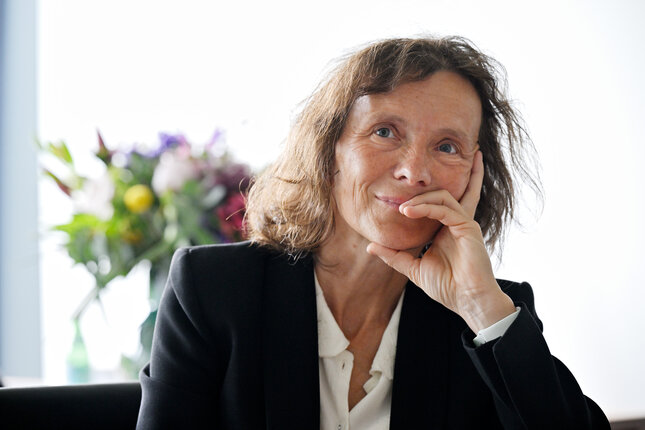
Social safety is something we need to continuously work on.
Rector Silvia Lenaerts
"It doesn't end with putting up posters or setting up helplines for social safety: we need to continuously work on this. And that applies to everyone who works or studies at TU/e in everything we do."
According to Lenaerts, this begins with speaking honestly and listening to each other. Heynderickx, TU/e's integrity ambassador, confirms that engaging in dialogue is hugely important. "I hope that the workshops given by Ellemers and her team, along with Human Resources Management, will help people at TU/e to develop those skills."
Sense of hope
Ellemers: "Social safety is an enormously large topic. It sometimes causes people to despair. Where do you start with the changing of an organization? I want to give everyone a sense of hope that they themselves can make a difference with small things. You, too, can help make that change."
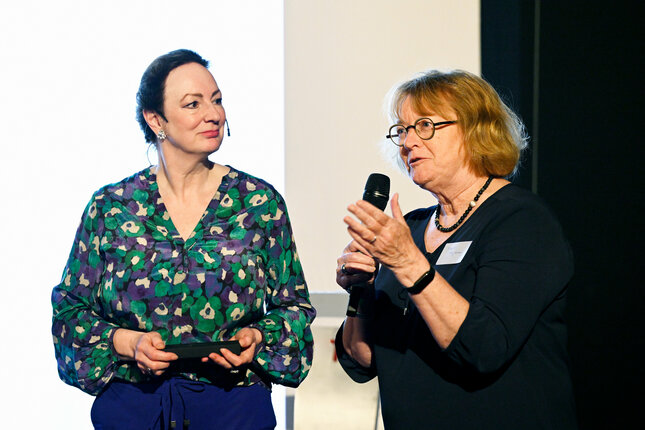
Engaging in dialogue with one another is hugely important.
Integrity Ambassador Ingrid Heynderickx
Heynderickx adds: "Everything doesn't immediately have to go right; we are a learning organization. We are allowed to make mistakes as long as we talk about them and learn from them to improve ourselves. Engaging in dialogue with one another is hugely important to this."
"What I found powerful in Naomi's lecture concerned the 'just the ways things are' remark often made: 'This is the way things are around here; I can't change that.' If you get stuck in that mindset, you don't have to do anything because 'that's just the way things are' is a convenient excuse to hide behind. But you can do something simply by starting the conversation or taking the time to listen if someone wants to discuss this with you."
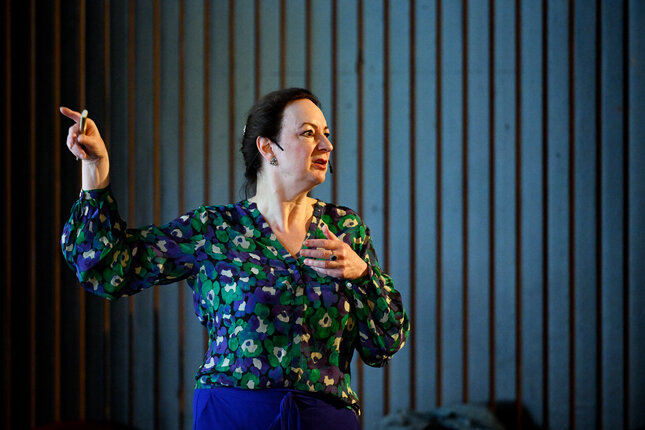
Talk about acceptable behavior before you start a project, not only when there are problems.
Social and Organizational Psychologist Naomi Ellemers
Ellemers: "Ask your colleagues questions instead of making assumptions. Before starting a project, establish a code of conduct together. Don't do that only when problems emerge; talk about it beforehand. What is acceptable behavior to you, and how does that feel to me? These seem like small things, but all those small things can collectively make the difference on the way to a safe workplace."
Values survey
TU/e recently launched a survey of our values. These were collected TU/e-wide across several sessions. The four clusters of values were recently evaluated with the entire community. These were: respectful, inclusive, collegial, empathetic, and caring; responsible and engaged; ambitious, professional, and curious; and credible, open, and transparent. The final values that best describe our university will soon be announced, Lenaerts says.
She emphasizes that the values form a set that you use together. "In doing so, you cannot cherry-pick. For instance, we consider academic freedom very important, but we also have to take responsibility for others, for our colleagues. You can't have one without the other."
Leadership
Managers play a crucial role in creating a socially safe work environment. There is still progress to be made in the academic world, says Ellemers. "It would be good to select our leaders based on their leadership qualities and how they interact with people rather than solely on their excellence as researchers."
You should aspire to a role as a leader because you want to help others grow. Leaders are there to take care of other people.
Rector Silvia Lenaerts
Lenaerts: "Some people want to take on a leadership role for their own sake. But you should aspire to such a role to help others grow. Leaders are there to take care of other people."
"When you reach a certain position, you are supposed to be able to do just about anything from day one. But that's not realistic," says Lenaerts. "It's up to us as an organization to provide good training and coaching for people who want to lead."
Biographical sketch
Lenaerts: "In addition, we recently started the 'biographical sketch' for the careers of academics. Leadership is an important part of this. Everyone is still searching within this, and there is a lot of diversity across departments, but we are working on it, and it's being embraced. I'm pleased about that."
Lonely leaders
"What strikes me is that many managers feel very lonely. Power differences also make it difficult to do things well. This applies not only to those who depend on others; having a position of power also makes you vulnerable," adds Ellemers.
"Everyone watches what the manager does. But that position of power also creates a high barrier to approaching them. So, you can't assume that you'll hear about it if they think that you're handling something incorrectly. At the same time, such a role requires enormous sensitivity and discretion when someone approaches you with a problem. You can't just ask a colleague for advice because you could harm another colleague."
"Fortunately, serious problems with behavior are rare. But that also means that managers have little experience in correcting problem behavior. They also don't always know what they can and may do in such cases."
Practice and mentorship
"It would be beneficial to have everyone in a management position practice periodically with examples from the past. Preferably in a group because, during such a 'fire drill,' you can discuss together: do we agree on what you should do here and how can we handle this better next time? Then you're prepared, feel supported, and it's less overwhelming when something like this happens."
Heynderickx believes that a mentorship program would be beneficial. "Experienced leaders would assist novice managers in developing the right sense of responsibility and offer themselves as sparring partners."
Labor Authority report
In mid-May, the Labor Authority published a report on undesirable behavior, work pressure, and working hours at all 14 Dutch universities. This shows that work pressure among academic staff is high and that more than half of academics have dealt with undesirable behavior.
A cultural change is needed, and TU/e is collaborating with other universities. The first steps have been taken with the national Recognition & Rewards program, in which leadership and collaboration are important.
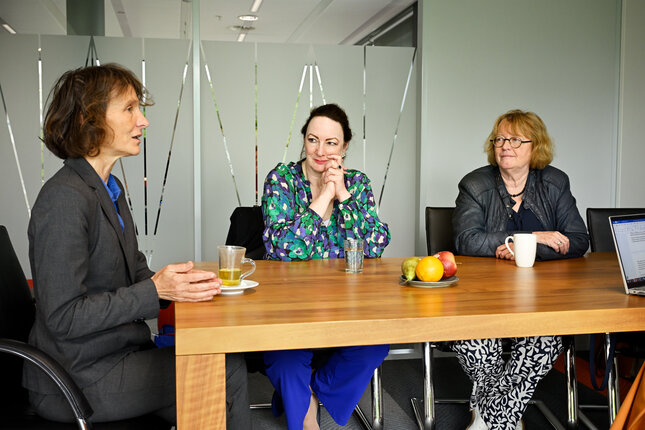
It's time to tackle things instead of talking about them.
Rector Silvia Lenaerts
"Awareness is growing, which is good," states Lenaerts. "There is still plenty of work ahead. Now is the time to tackle things instead of primarily talking about them. That's why we recently started a pilot on the Integrity and Social Safety Desk. At this online desk, everyone within TU/e can pose questions about integrity and social safety. It's not yet perfect, but we can learn from that." The desk will be officially launched at the opening of the academic year in September.
Helplines
Heynderickx emphasizes the fact that a lot is already taking place in the area of social safety at our university. "Many people are doing the right things; there are a lot of helplines for employees and students. By bringing this together in one desk, I hope that they will become more visible and that people will know how to find the helplines better."
Ellemers says that it's good to reinforce what you're already doing. "You don't have to invent something new. Look at how you can make everything you're already doing even more effective."
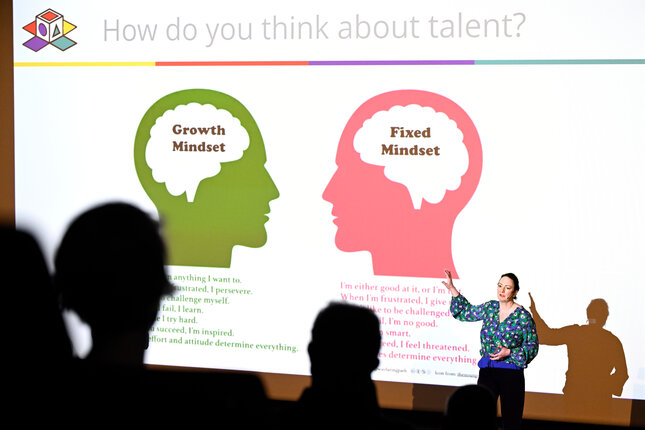
Everyone involved
In her lecture, Ellemers emphasized that the responsibility for social safety and cultural change lies with everyone. And not just with the group of people who actively engage with the issue while the rest just continue doing what they've always done.
"Everyone has to change something, has to be working on it," Ellemers says. "You can say: the issue is big; it takes a long time to bring about a cultural change. Getting the best out of each other simply takes time. Don't let that discourage you because every little bit helps. You yourself can make a difference in your own group or environment."
Ask each other uncomfortable questions, and you'll get on the right track together.
Social and Organizational Psychologist Naomi Ellemers
Ellemers has a tip for anyone who wants to get involved with social safety: "In the KNAW's advisory report, there are all kinds of questions (see the 'Getting started' tab) about the culture in your workplace. You can use these to get started. Among them are uncomfortable questions you can ask each other to empower one another. You can then get on the right track together."
On the road together
"It's about working together to make our university a nice and safe place to study and work," Lenaerts concludes.
Ellemers agrees. "A socially safe studying or working environment is not a place where no one makes mistakes or sometimes says or does clumsy things. It's a place in which it's okay to talk about these things with each other and in which there is the will to learn from mistakes."






